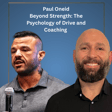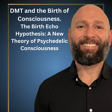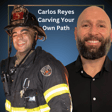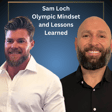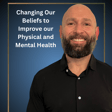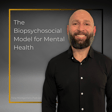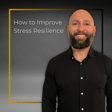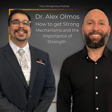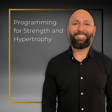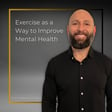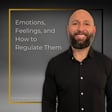
Cognitive Control, Emotion Regulation, and the Psychophysiology of Anxiety w/ Dr. Jason Moser
n this episode, I sit down with Dr. Jason Moser, professor of psychology and neuroscience at Michigan State University and director of the Clinical Psychophysiology Lab, to explore what the brain’s response to errors, emotions, and internal conflict reveals about mental health. Dr. Moser’s groundbreaking research on cognitive control, anxiety, emotion regulation, and resilience sheds light on why some people struggle more with worry and perfectionism—and how simple tools like journaling, mindfulness, and even belief in placebo can help us manage emotional challenges. From neural biomarkers like the ERN and LPP to personalized, low-cost interventions, we dive into the science that connects our brains to our behavior, and what it means for creating a more compassionate, adaptive approach to mental health.
Dr. Jason Moser is a professor of psychology and neuroscience at Michigan State University and the director of the Clinical Psychophysiology Lab. His research investigates the intersection of emotion, cognition, and behavior, with a focus on anxiety, resilience, and how the brain monitors mistakes and regulates emotion. He is widely recognized for his work on neural markers like the ERN and LPP, and has pioneered research translating laboratory findings into practical, scalable tools to improve mental health. His work has been featured in Scientific Reports, Nature Communications, Psychophysiology, and mainstream media outlets like VICE, Yahoo Life, and PBS KIDS.
